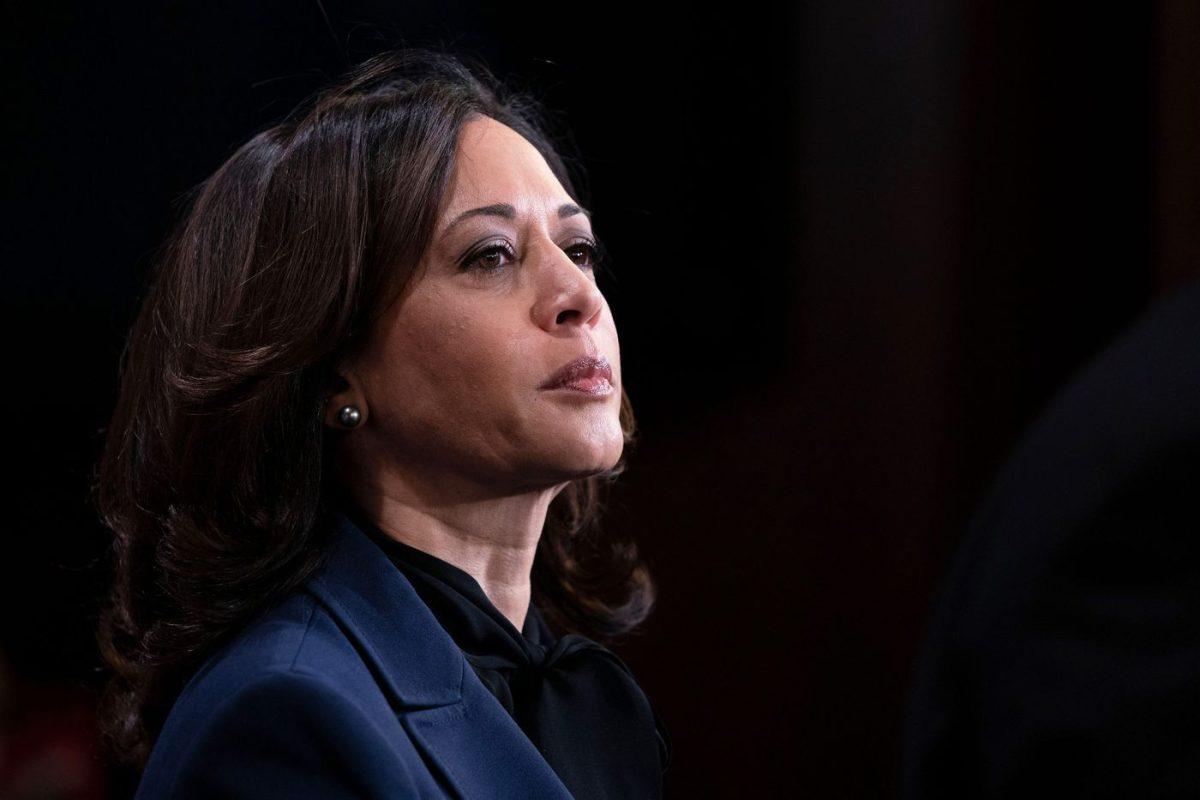By Dana Cadey
“America United” was the theme of President Joe Biden’s inauguration ceremony today. It’s an interesting choice, considering how decidedly not united the country feels at the moment. However, this hyper-tense political environment is likely to diminish now that the peaceful transfer of presidential power has taken effect and Biden has officially assumed his elected position. With this transfer now behind us, it’s time to think past the Trump era and start considering the actual implications of the Biden presidency.
Because of the incredibly contentious nature of the Biden-versus-Trump showdown, a historic component of Biden’s administration has arguably received less attention: Kamala Harris’ role as the first female vice president of the U.S.
Harris’ win is incredibly significant. While not the first person of color to serve in the vice presidency (this title goes to Charles Curtis, the biracial Native American vice president to President Herbert Hoover), Harris is the first woman of color to do so. Her parents’ Jamaican and Indian ethnic identities also cement her place in U.S. history as the first Black and Asian American vice president.
“I cannot believe that it took until 2020 to get a woman into the White House,” said Dean of Students Maya Dietz. “But I also understand the forces of sexism. It’s crazy in the sense that there’s no real reason that we shouldn’t have done it sooner, except for sexism.”
Principia College political science professor Brian Roberts echoed Dietz’s sentiment. “It’s certainly long, long overdue,” he said.
Both Roberts and Dietz have lived through several women filling the vice-president role on a major-party ticket, including Geraldine Ferraro in 1984 and Sarah Palin in 2008. Multiple women have also run for VP under lesser-known banners such as the Equal Rights and Progressive parties. Since none of these campaigns ultimately succeeded, Harris gets the honor of becoming the highest-ranking female elected official in U.S. history.
“I was born in the ’70s, and I was told that I could do and be whatever I wanted,” said Dietz. “… I found the election very emotional, just because of Harris, and the idea that a woman would be sitting in this seat.”
While Dietz is hopeful that Harris’ win marks a critical step forward for women and minorities in politics, she pointed to the fact that broad, sweeping change doesn’t happen overnight. Dietz pointed out that forces such as racism and sexism are prevalent in our world no matter who occupies the presidency.
“There’s lots of research that tries to prove whether or not ‘the first crack leads to a shattering,’” said Dietz. “Sadly, I think the evidence says no. I think history has shown that it takes a while to become normalized, because the first win is often a lightning rod for everyone who doesn’t want the change to come forward.”
Roberts elaborated on the idea of the value of representation in our democracy.
“We have 26% of seats in the House of Representatives being filled by women, and 24% in the Senate,” said Roberts. “But women are more than half of the population. With Harris, I think it’s important for women, and particularly women of color, to have this example of seeing an individual like themselves in a position like the vice presidency.”
For many Americans, the Trump administration’s immediate efforts to invalidate this election undermined the weight of the accomplishments of the Biden-Harris victory. Dietz encourages people to look at the situation a bit differently, however.
“This idea that there was [voter] fraud is going to be a blip in history, but [Harris’] assumption of this office will always be a moment of change,” said Dietz. “So if you can take a longer-term view, then you can hold onto the power of the moment.”
Roberts expressed some disappointment about the nature of this year’s inauguration ceremony, which felt decidedly less celebratory than previous ones.
“I’ve been in Washington, D.C., on the day of an inauguration before, and it’s a really special event,” said Roberts. “It really is a shame that we have all the barricades up and there can’t be the same kind of peaceful, celebratory atmosphere. That’s what I’ve been used to in my lifetime. Without a doubt, that’s certainly taken away from the attention of the significance of Harris becoming vice president.”
Dietz also sees connections between today’s historic inauguration and the Christian Science movement’s long history of female leadership. The religion has, notably, been led at many points by women, from Mojisola Anjorin Solanke George’s current position as First Reader of the Mother Church to Mary Kimball Morgan’s establishment of Principia. Dietz recognizes how valuable it is for Christian Scientists to have these strong examples of female authority; however, she cautions against blindly ignoring our religion’s own history with sexism and racism.
“I want the impact that Christian Science has made on the world not to be undermined, but also not to get stuck in what [Mary Baker Eddy] understood in 1900,” said Dietz. “She clearly had a vision for the feminine as something bigger and more powerful than what people thought at the time. I think if people get too stuck in what was written by her, then we have our own examples of glass ceilings.”
Dietz ended with a plea: “Let Harris be her own thing. She has her own battles to fight, and she will do things that we don’t all agree with. We have to let everyone walk their own path and rejoice in the continuing expansion of who gets to be at the table.”
Featured photo by Alex Edelman on Shutterstock.





